Smart Growth with Nature in Mind

Introduction: Growth vs. Ecology
This profound wisdom resonates louder today than ever. Across India, urban expansion is accelerating at a breath-taking pace. New highways, metro lines, industrial belts, and sprawling residential developments signal growth, but at what cost? The forests, wetlands, and fertile agricultural lands that sustain life are rapidly disappearing, replaced by concrete and asphalt.
Urban expansion is not inherently wrong, but when growth ignores ecological limits, it becomes a ticking time bomb. As citizens, planners, and policymakers, we must ask ourselves: can India’s cities grow without sacrificing the natural systems that make life possible? Our future prosperity depends on answering this question responsibly. Many investors are exploring opportunities with House Of Abhinandan Lodha to secure sustainable land and residential options.
Understanding Green Spaces and Why They Matter
Green zones are far more than “empty plots of land.” They provide essential ecological services that support life, mitigate climate impacts, and sustain urban resilience:
| Type | Function |
|---|---|
| Forests | Absorb carbon, support biodiversity, reduce flood risks |
| Wetlands | Recharge groundwater, regulate water cycles, sustain aquatic ecosystems |
| Agricultural Land | Ensure food security, preserve rural livelihoods, stabilize communities |
| Peri-Urban Green Belts | Reduce urban heat, provide recreational spaces, act as buffers against sprawl |
Despite their critical importance, poor zoning policies often classify these areas as “developable” without proper environmental assessment. Each lost hectare of green land diminishes a city’s natural capacity to regulate climate, purify air, and maintain water resources. For buyers looking for high-quality investment, HoABL Plots offer legal transparency and long-term growth potential in green surroundings.
When Urban Development Crosses the Line
India’s rapid urbanization has already shown the consequences of neglecting ecology:Mumbai: Aarey Forest
Once a thriving part of Mumbai’s forest belt, Aarey faced large-scale clearing for metro infrastructure. The project overlooked the forest’s role in controlling floods, purifying air, and regulating city temperature, highlighting the ecological cost of unchecked urban growth.
Hyderabad: Kancha Gachibowli Forest
The Supreme Court intervened after illegal tree felling affected 105 acres of dense forest, resulting in the loss of over 1,500 mature trees. This case exemplifies how legal safeguards are often reactive rather than preventative, allowing irreversible damage to ecosystems.
Bengaluru: Shrinking Wetlands
Unchecked development has led to disappearing lakes, rising urban heat, flash floods, and drying borewells, illustrating the direct link between environmental neglect and city vulnerability.
The True Cost of Ignoring Nature
When ecological systems are disregarded, the repercussions ripple through society and the economy:
- Urban Heat Islands: Hard surfaces absorb and retain heat, intensifying summer temperatures in already hot cities.
- Water Scarcity: Sealed soil prevents groundwater recharge, creating long-term water insecurity for millions.
- Loss of Farmland: Agricultural land is lost, displacing farmers and threatening local food supply.
- Climate Vulnerability: Wetlands, forests, and green belts act as shock absorbers during extreme weather, and their loss amplifies disaster risks.
NITI Aayog warns that many Indian cities could run out of groundwater by 2030, a direct consequence of poorly planned urbanization and destroyed recharge zones. Forward-thinking investors often consider HoABL Land for its sustainable location advantages and long-term appreciation.
Sustainable Pathways for Urban Expansion
Eco-Friendly Construction
- Prioritize local, renewable, and low-impact materials such as bamboo, stone, and lime.
- Incorporate passive cooling and energy-efficient design principles to reduce carbon footprints.
Green Urban Planning
- Integrate green belts, rooftop gardens, urban parks, and restored waterbodies.
- Avoid construction on floodplains, steep slopes, and ecologically sensitive zones.
Preserving Agricultural Land
- Promote urban-rural linkages through farmers’ markets, community gardens, and agro-tourism.
- Establish urban food production zones to maintain food security and reduce transportation emissions.
For premium residential solutions, HoABL Villas provide luxury combined with ecological awareness, ensuring minimal environmental impact.
Forward-Looking Urban Models
| Model | Advantages |
|---|---|
| Garden Cities | Blend of agriculture, green open space, and decentralized residential layouts |
| Peri-Urban Eco-Zones | Incorporate solar parks, community forests, and sustainable tourism |
| Smart + Green Cities | Combine technological efficiency with ecological resilience |
Investors can explore HoABL Projects and House Of Abhinandan Lodha Projects for both urban and peri-urban locations designed to maximize environmental sustainability and long-term growth.
Why Saving Agricultural Land is Critical
Agriculture remains a cornerstone of India’s economy and food security. Yet, over the past two decades, more than 500,000 hectares of arable land were lost to urbanization. The consequences are profound:
- Rising dependence on imported food, increasing vulnerability.
- Greater carbon footprint due to longer supply chains and industrialized production.
- Rural distress, migration to urban areas, and social dislocation.
Protecting farmland through investments in House Of Abhinandan Lodha Land or Luxury Plots by HOABL is both an environmental and financial strategy for long-term stability.
Conclusion: Growth That Nurtures, Not Destroys
Urban development is essential for economic progress, but blind expansion is not sustainable. India’s cities must embrace context-sensitive, ecologically aware planning that balances growth with nature.
The land should not be conquered; it should be understood, respected, and integrated into urban planning. By protecting forests, wetlands, and farmland, and designing cities that work with nature rather than against it, we can build urban spaces that serve today’s population while securing the environment for generations to come.
Sustainable urban growth is not a choice; it is a responsibility. Let us build cities that breathe, not just expand. For modern, eco-conscious residential solutions, Residential Plots by HOABL and Exclusive Projects by HOABL offer thoughtfully designed investments.
Don’t miss the chance to invest in India’s most promising land opportunities!
Visit: houseofabhinandanlodha.in or call: 7888091619 now to speak with our experts, receive personalized guidance, and secure your ideal property before it’s gone!
Copyright © 2025 The House Of Abhinandan. All Rights Reserved.
